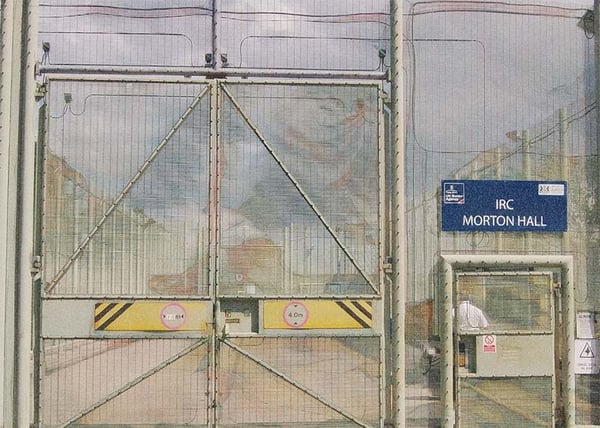No end in sight
In the UK, immigration authorities can detain non-British citizens indefinitely – and they do. More than a third of those taken into immigration facilities last year spent longer than a month in detention. One in ten were held beyond half a year, all without a court ruling or judicial review.
Immigration detention is used to establish the identity of detainees, process imminent deportation, and prevent absconding. Government guidelines warn against lengthy detention – both in respect of fundamental rights and to reduce costs – but don't set a hard upper limit. Britain's government says it aims to cap detention at 28 days, but this target is not legally binding.
”Immigration detention should be strictly time-limited,” Steve Valdez-Symonds, Amnesty International UK's Refugee and Migrant Rights Programme Director, told The European Correspondent, pointing to the harm caused by prolonged uncertainty. ”The cruelty is exacerbated by the extraordinary and wholly unacceptable length of time for which some people are held.”
The UK has one of the largest immigration detention systems in Europe. Last year, immigration authorities detained more than 20,000 people. Around half were Europeans, mostly from Albania, Romania, and Poland.
Legal advice groups I've spoken with say some clients spend more than a year in immigration detention, often while experiencing physical and psychological health conditions. Yet, the UK is the only country in Europe without a statutory time limit on immigration detention. All EU member states, except Ireland and Denmark, are bound by the Return Directive, which sets a six-month limit, extendable to 18.
Denmark, though not bound by the directive, applies the same limits. France caps detention at 90 days. Belgium, Germany, and the Netherlands set an upper limit of half a year, but with options to extend in specific circumstances.

